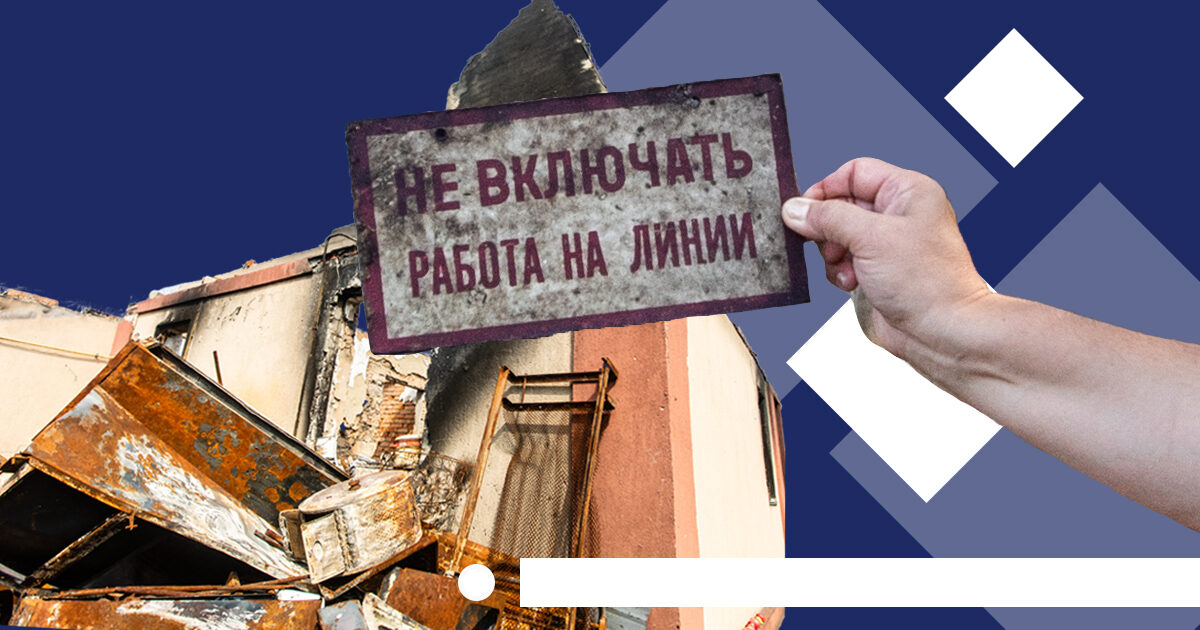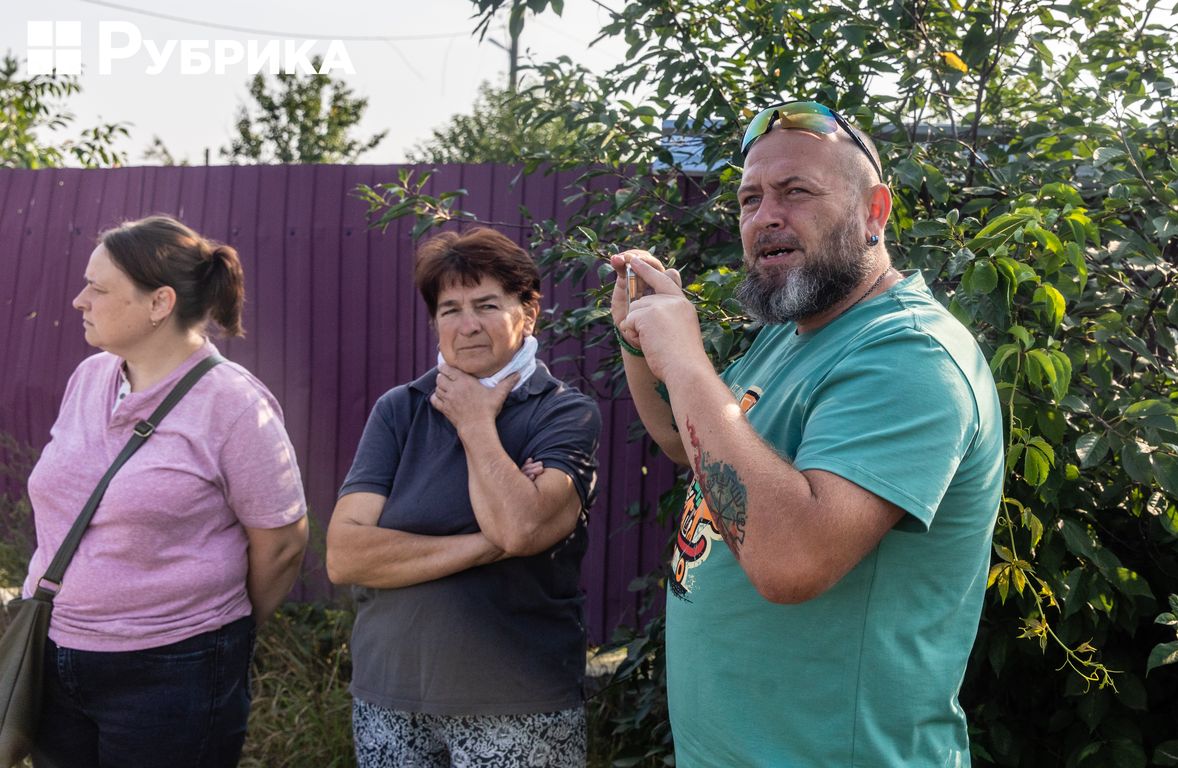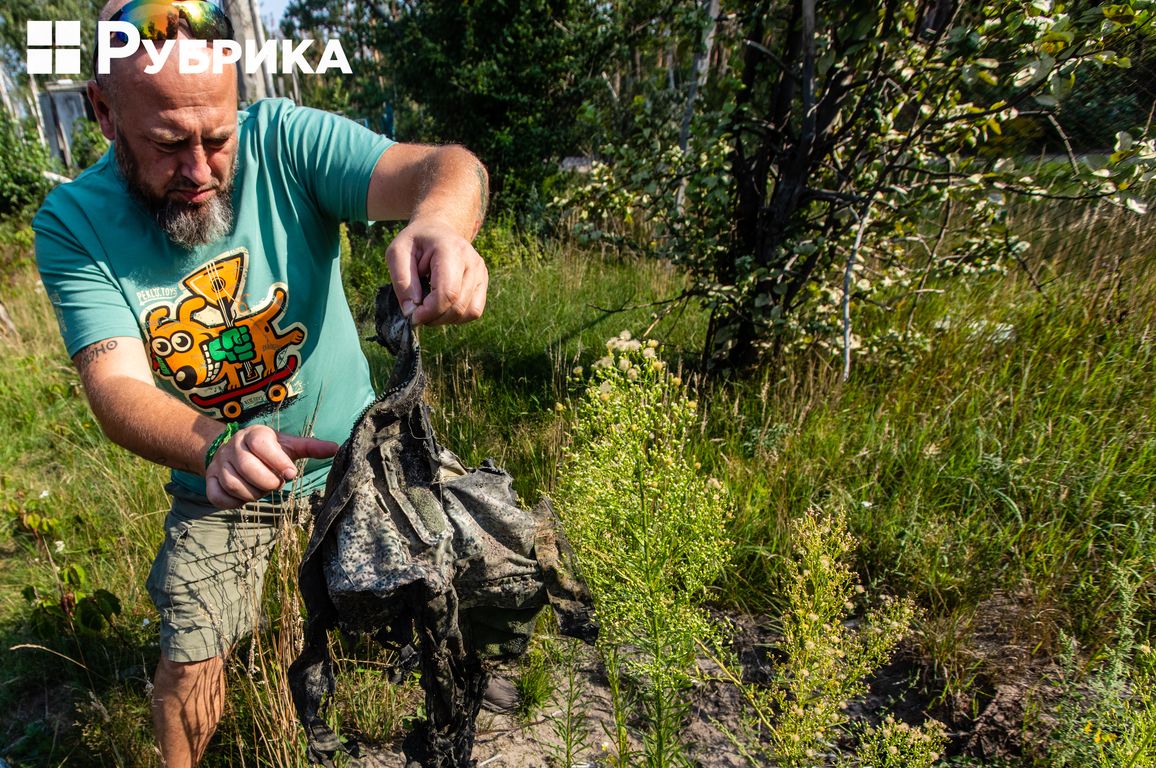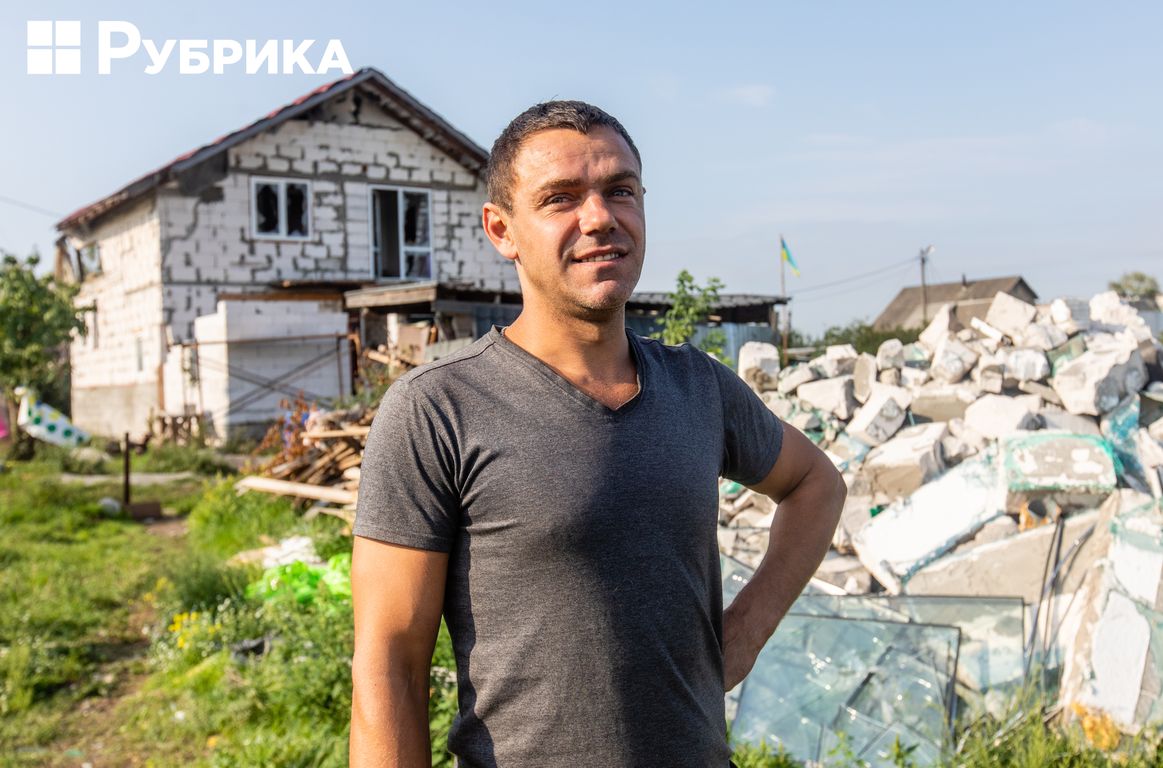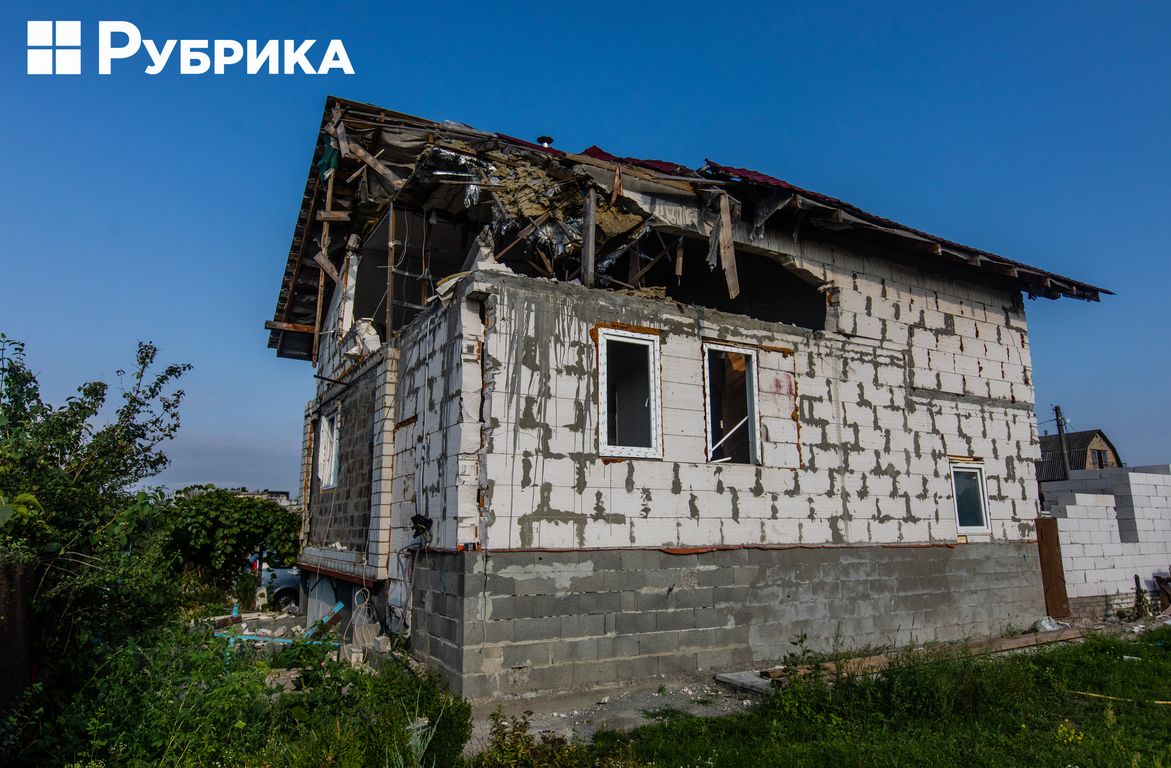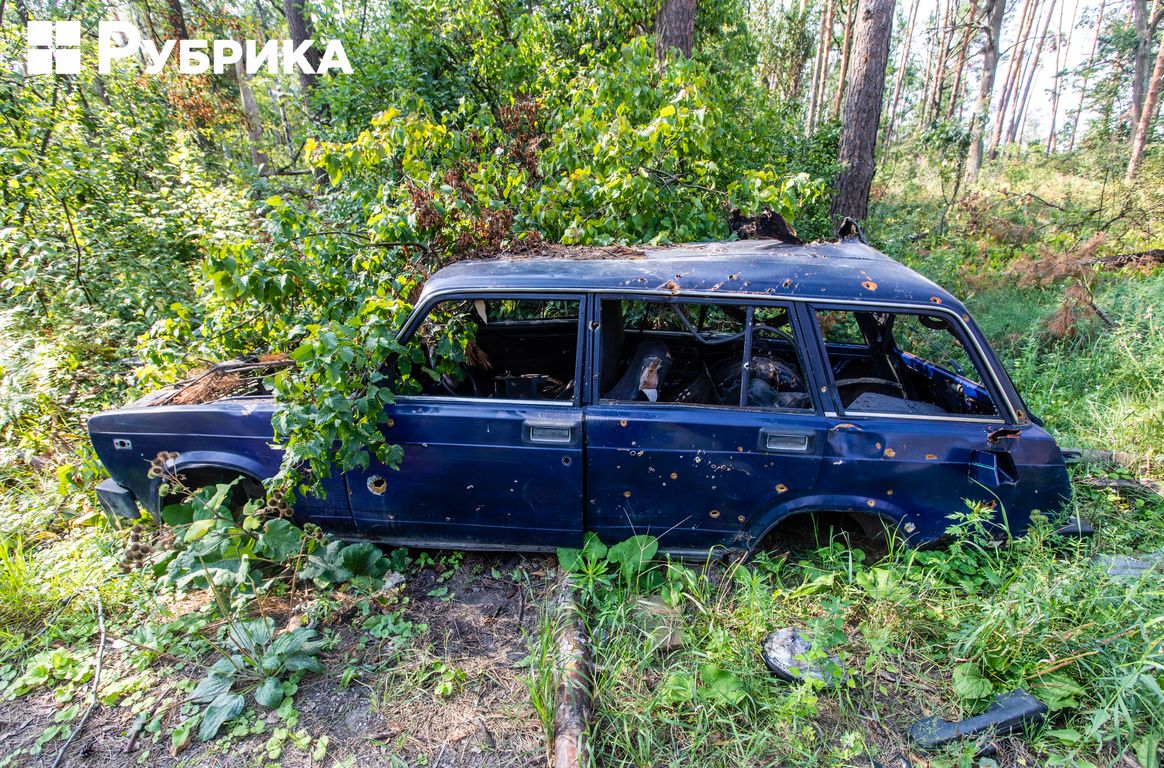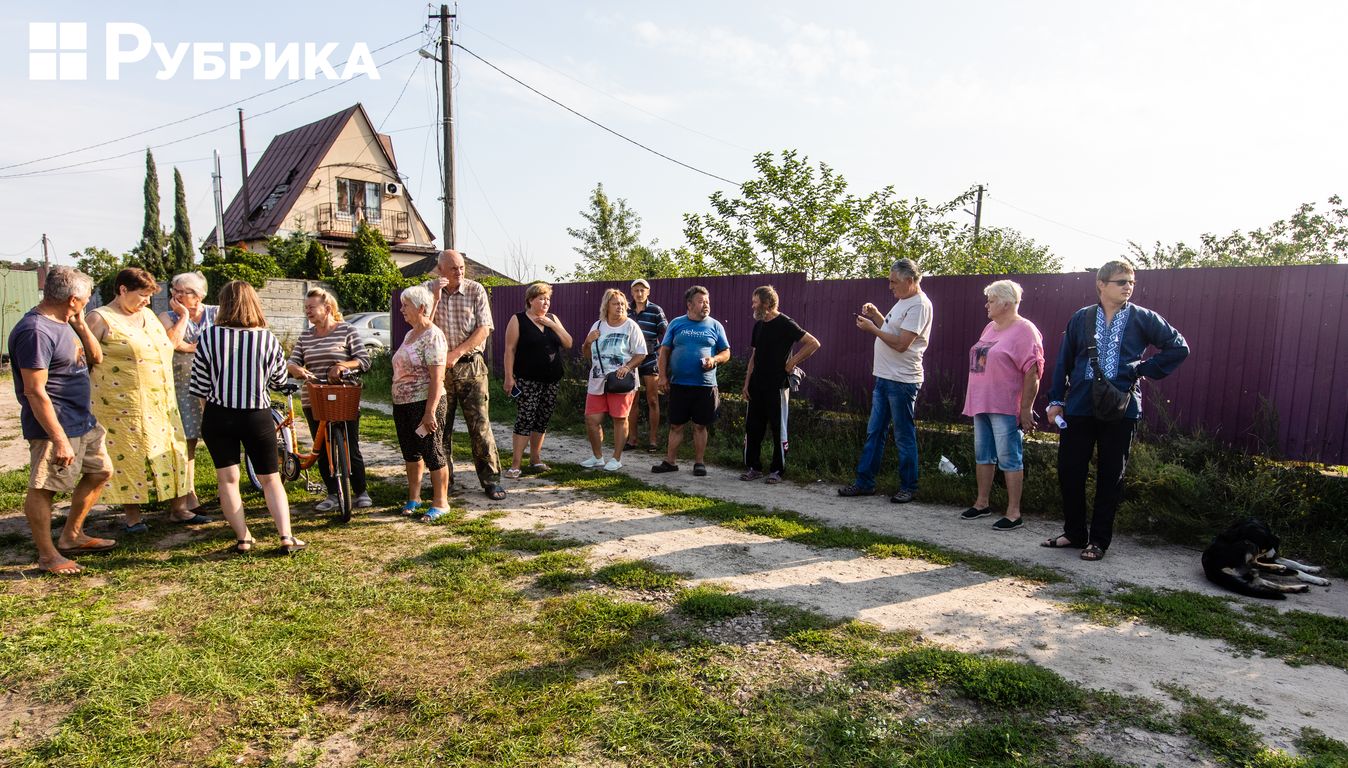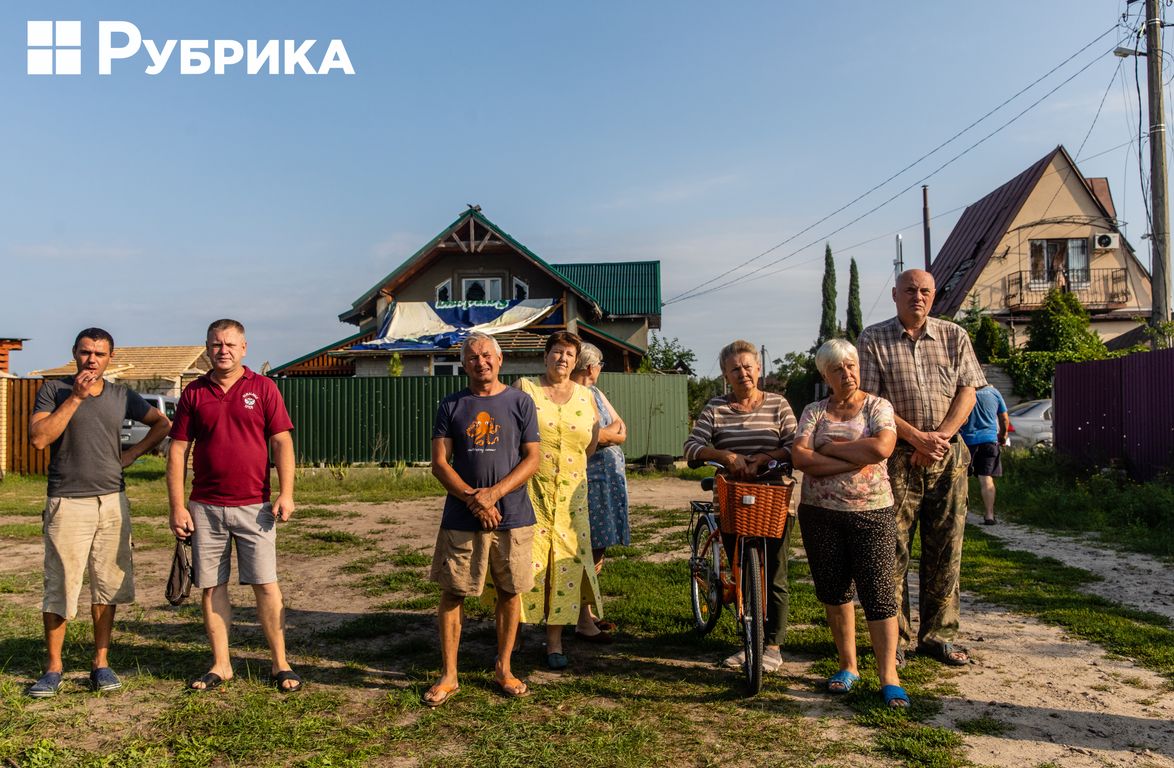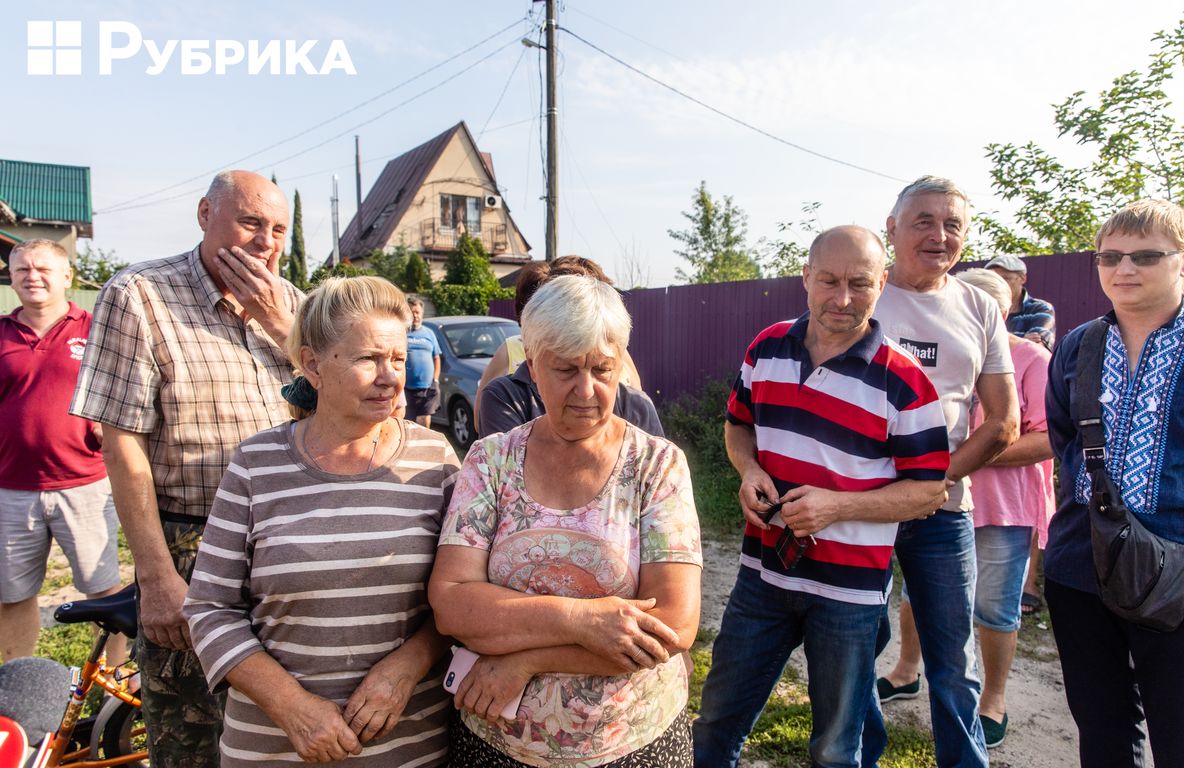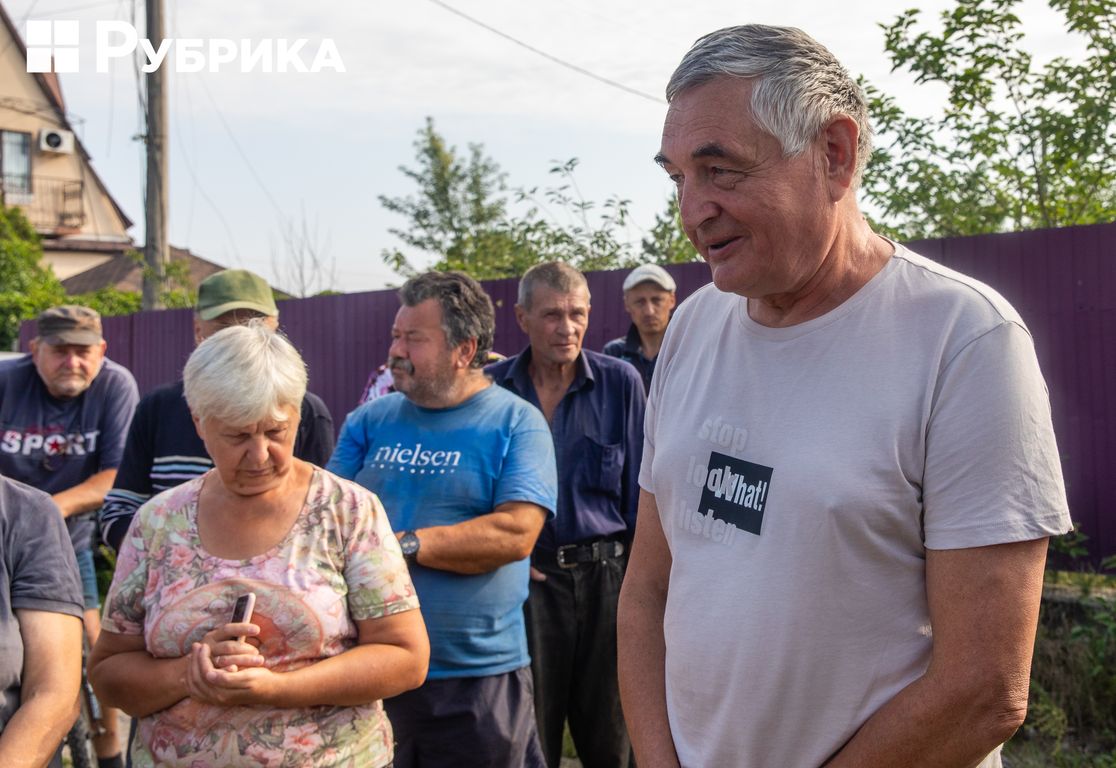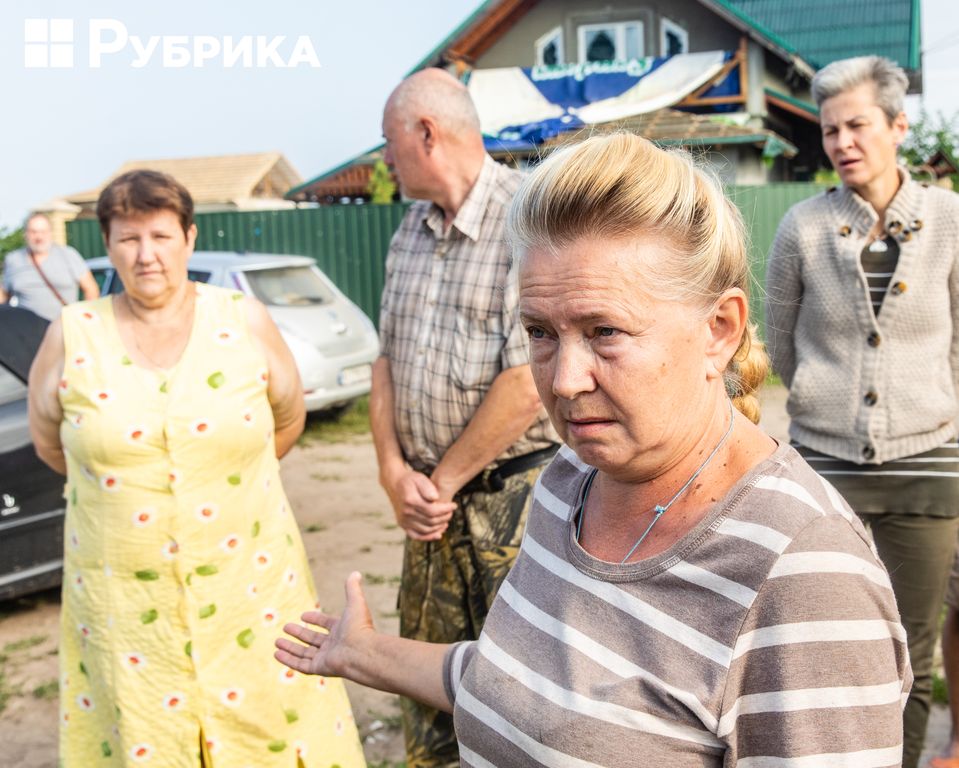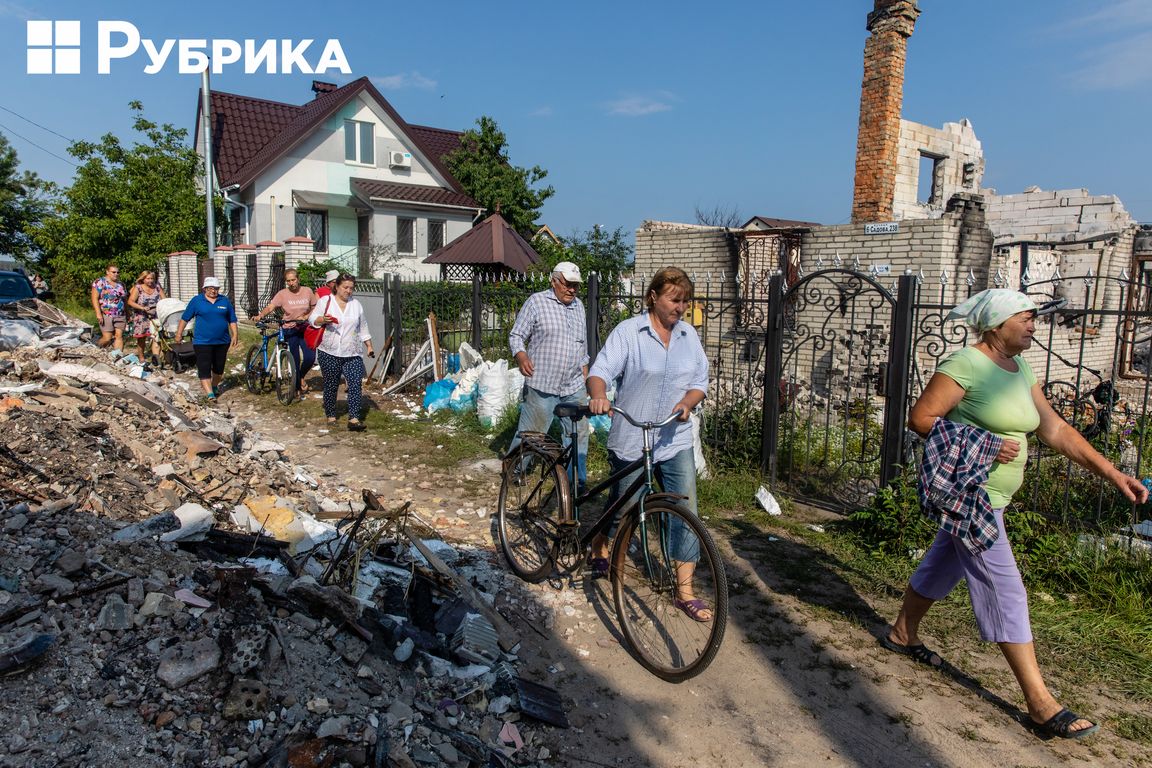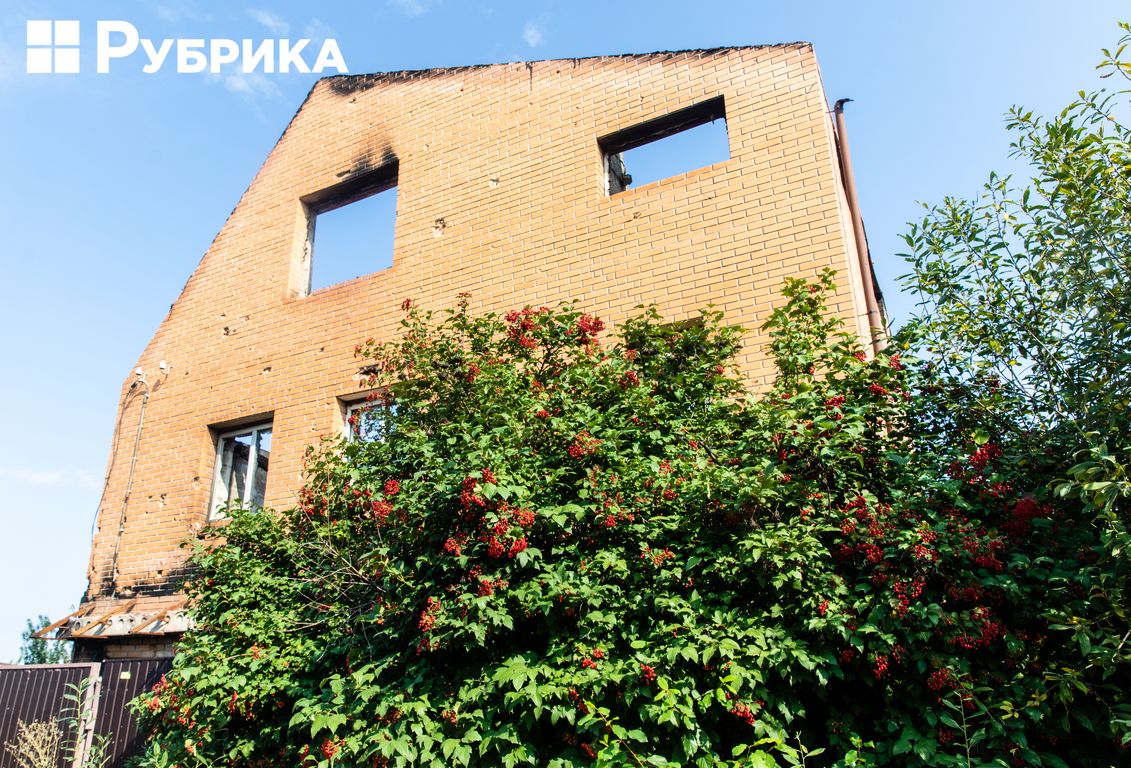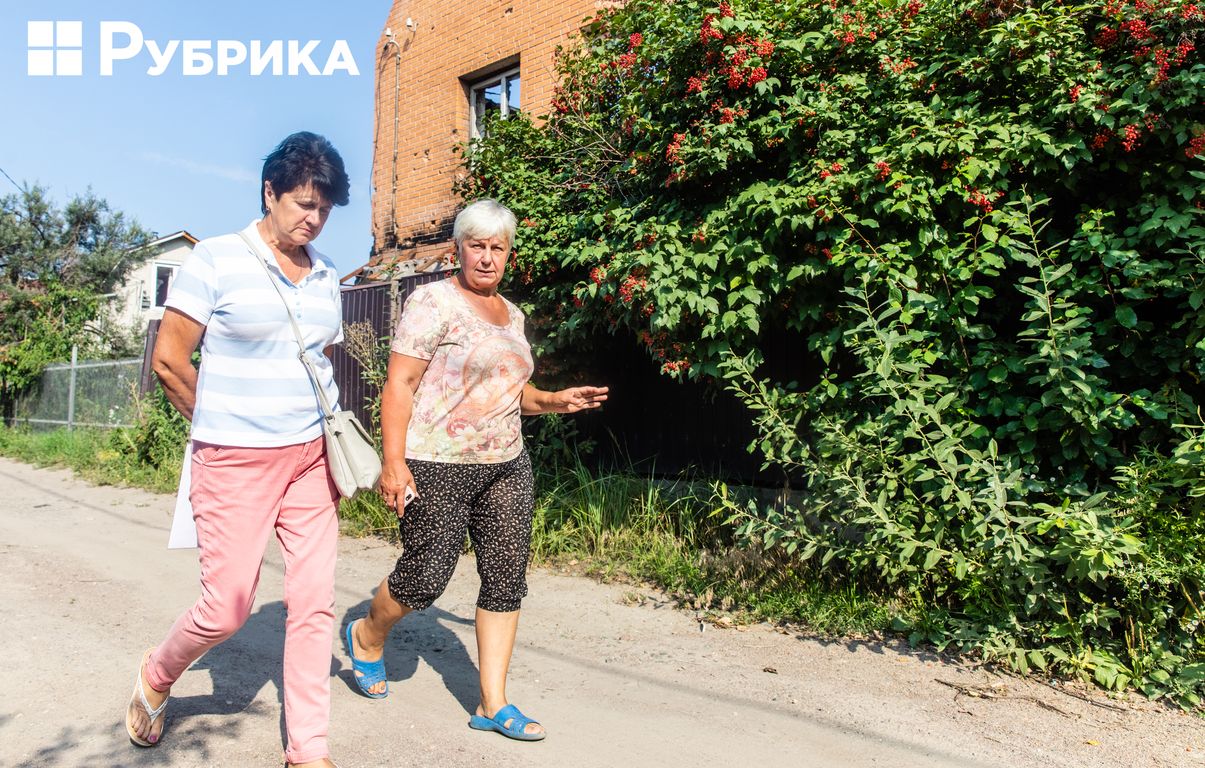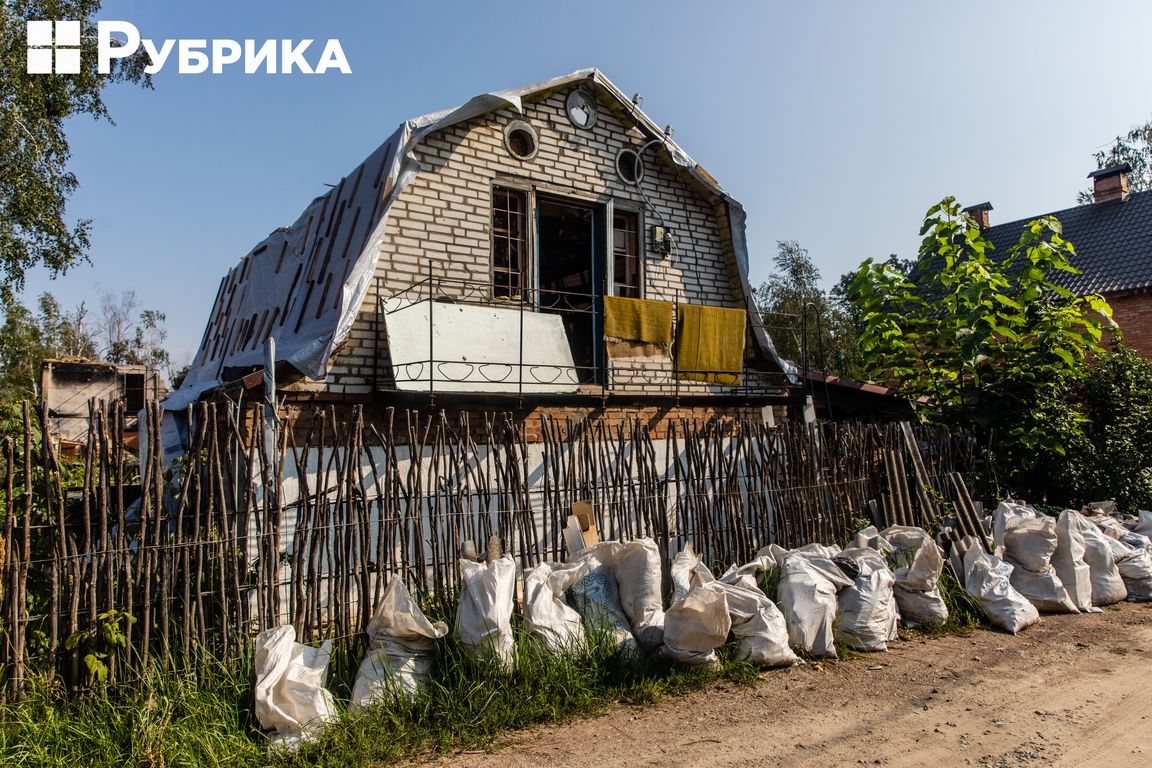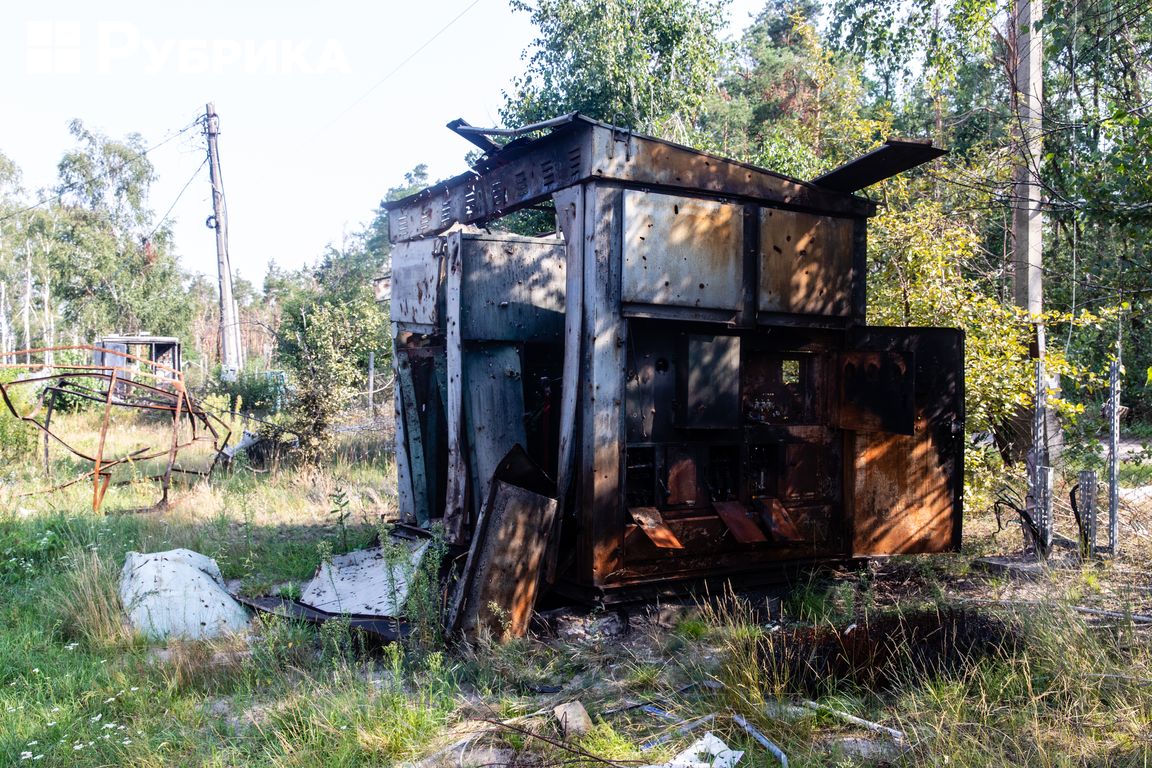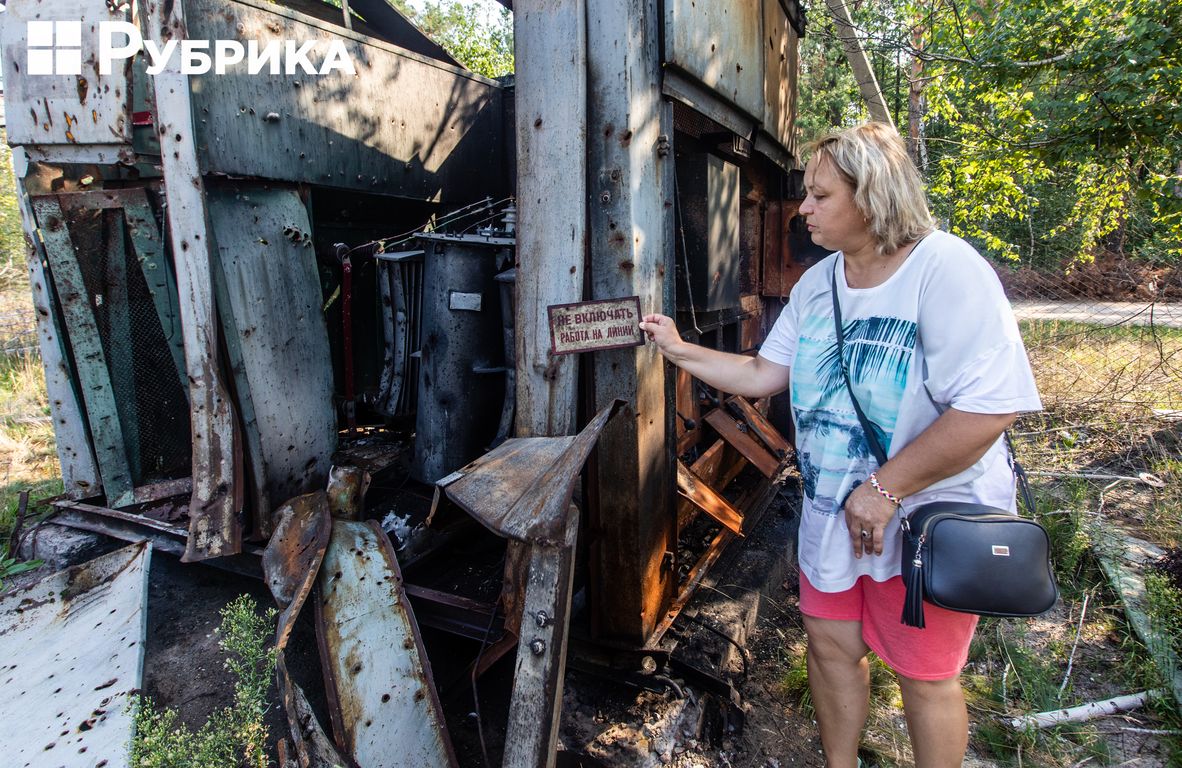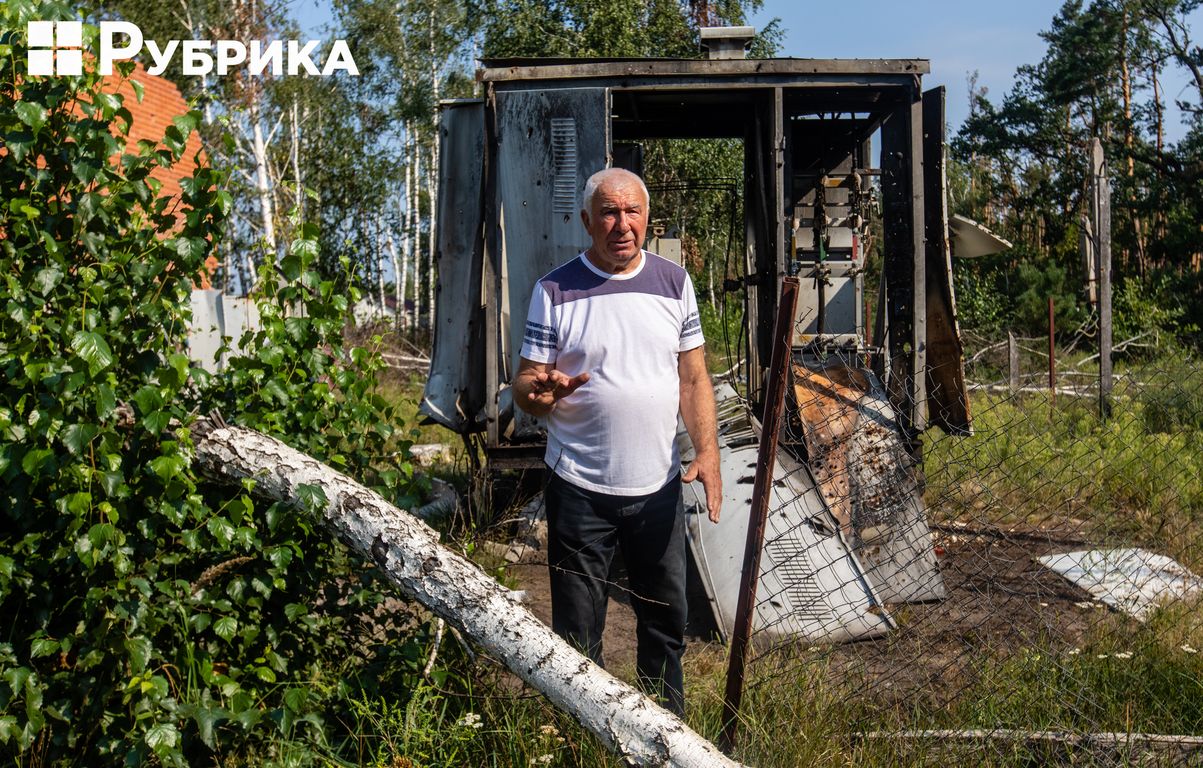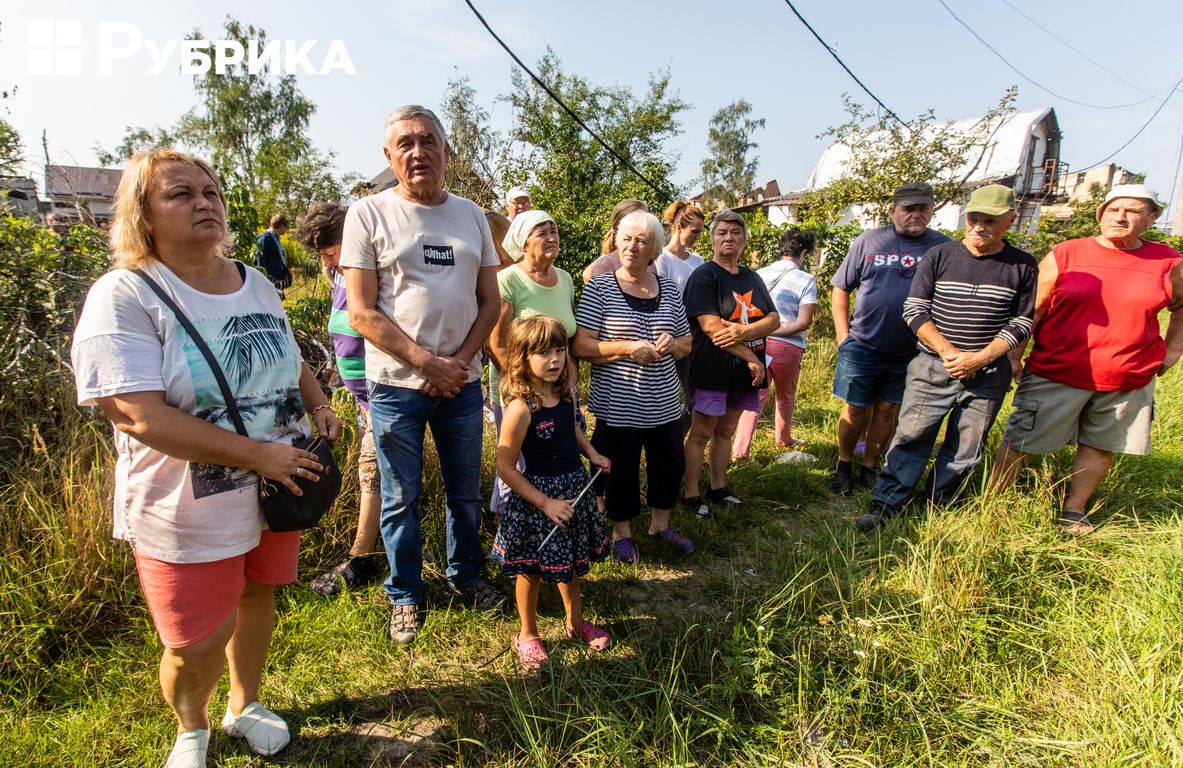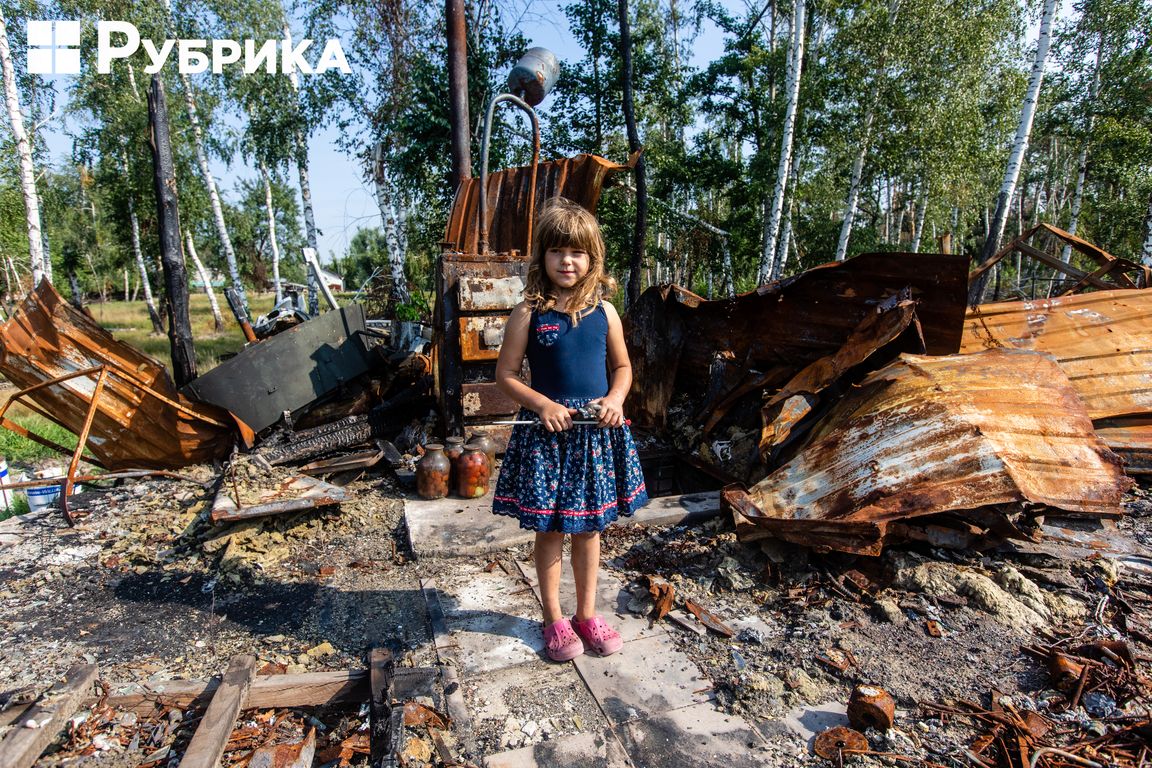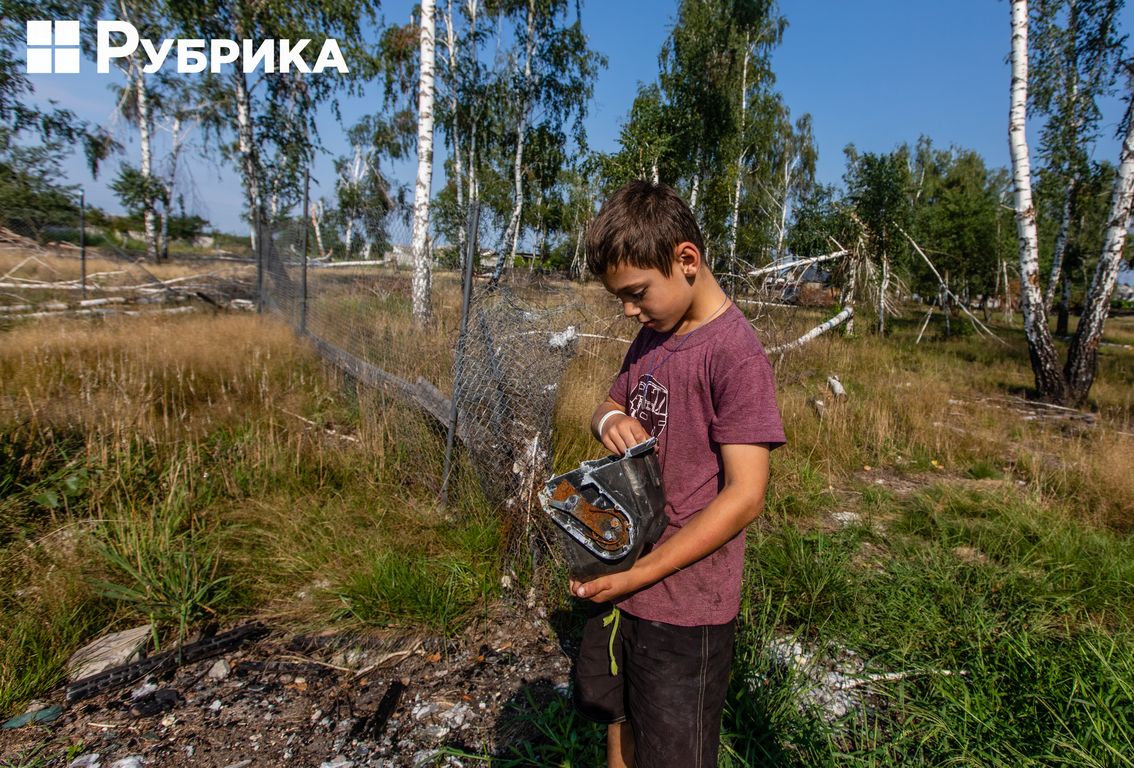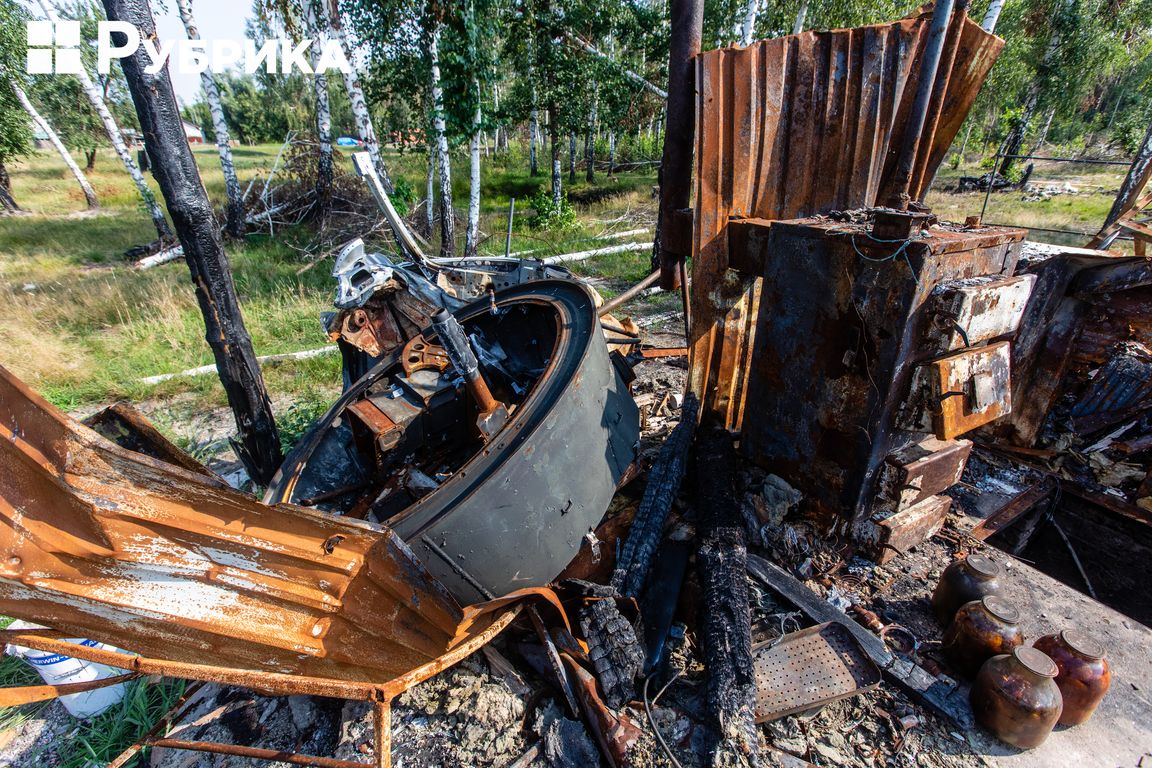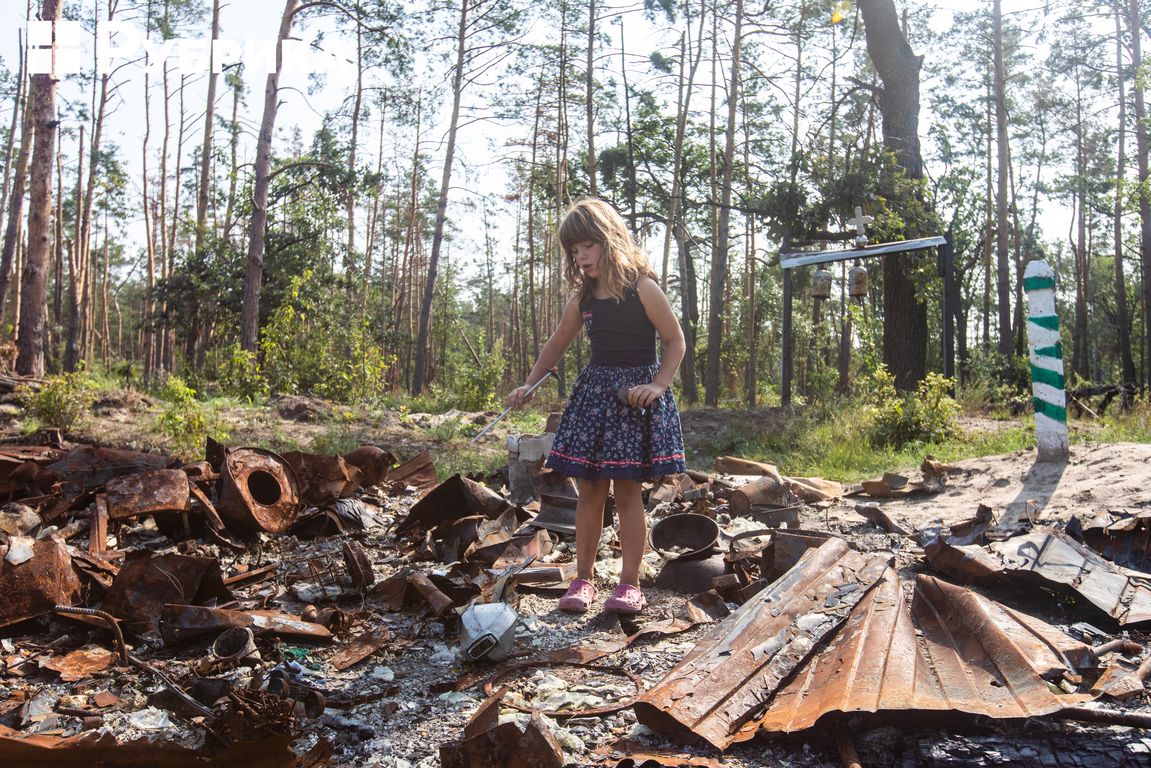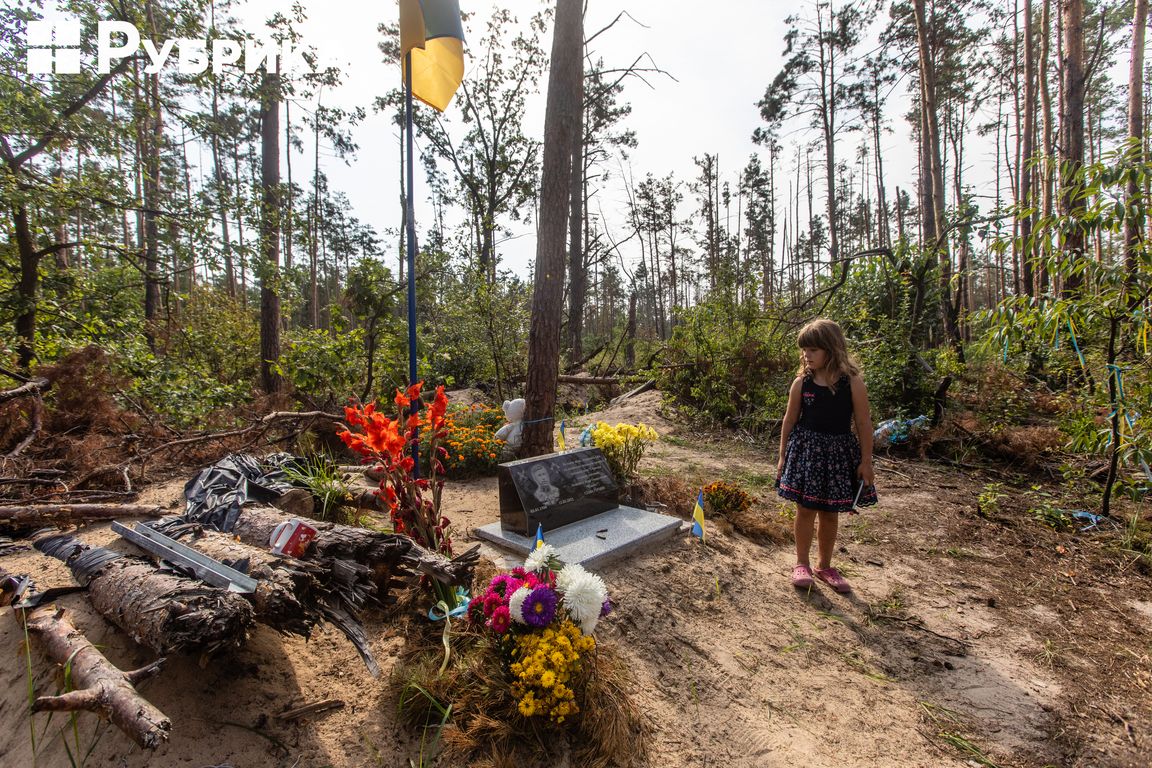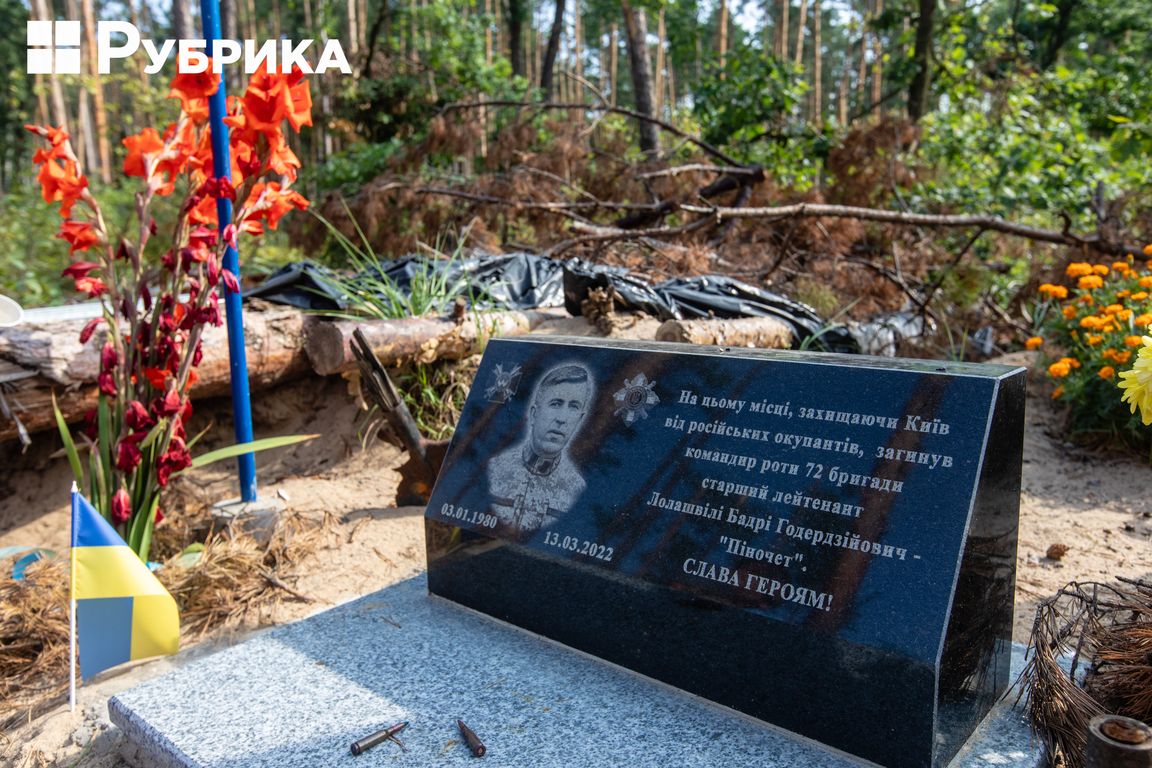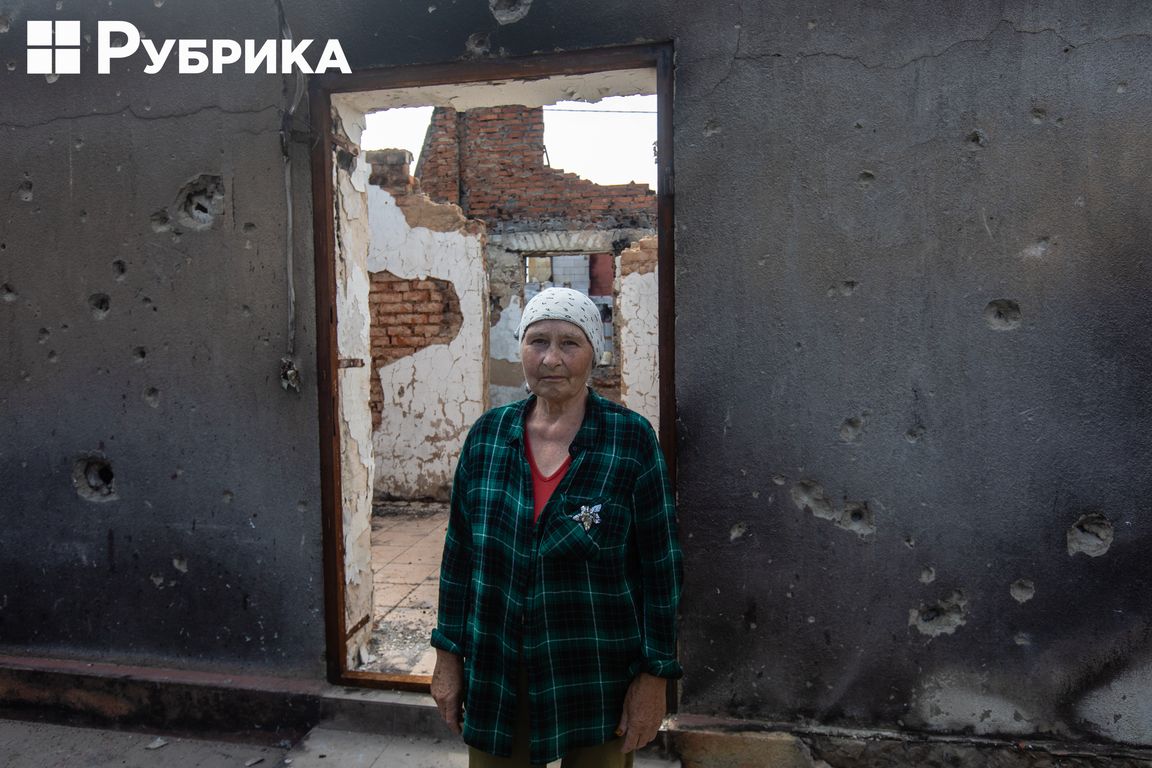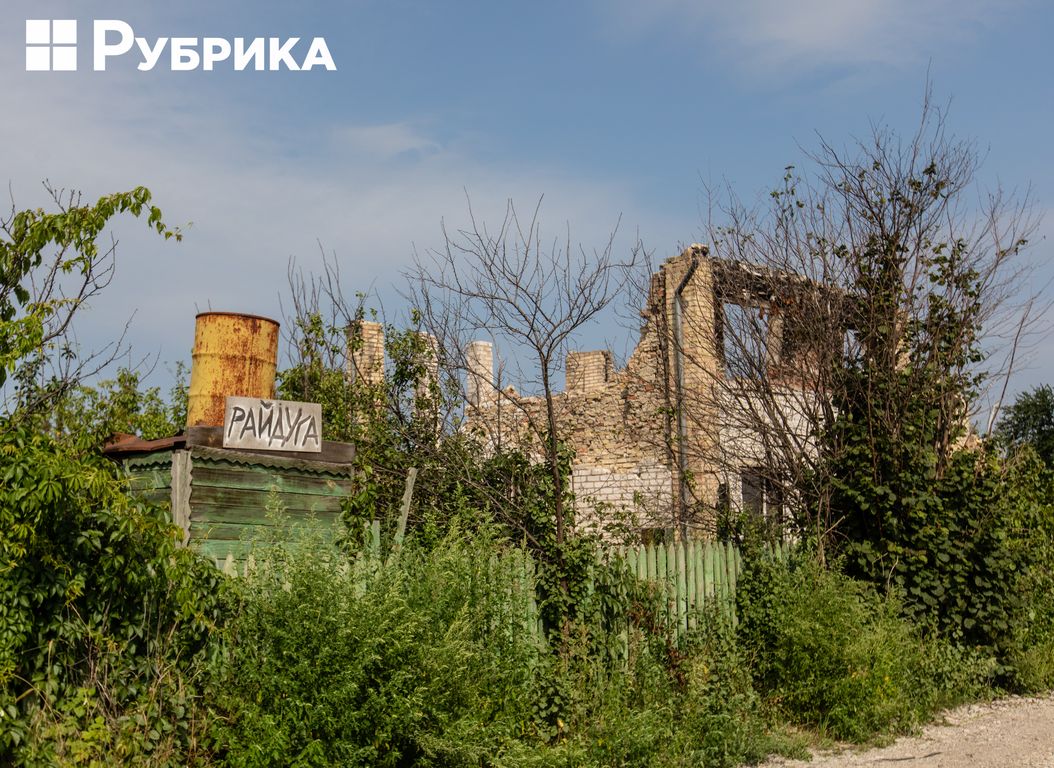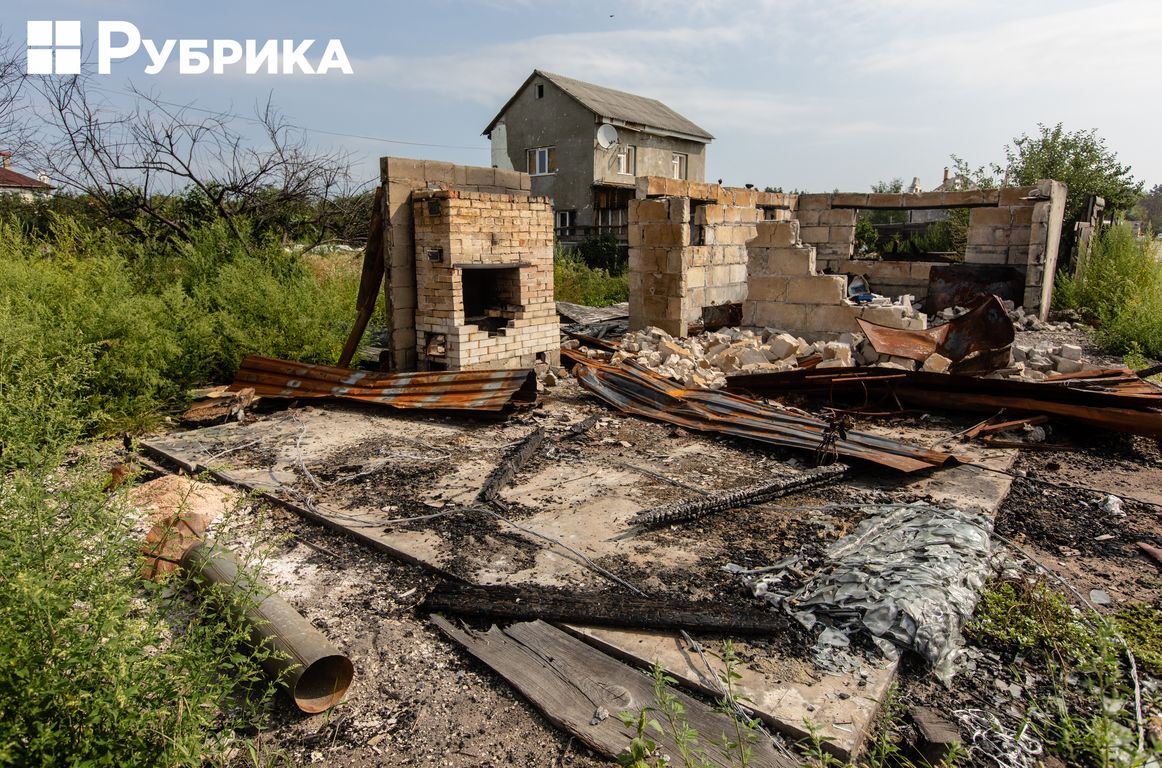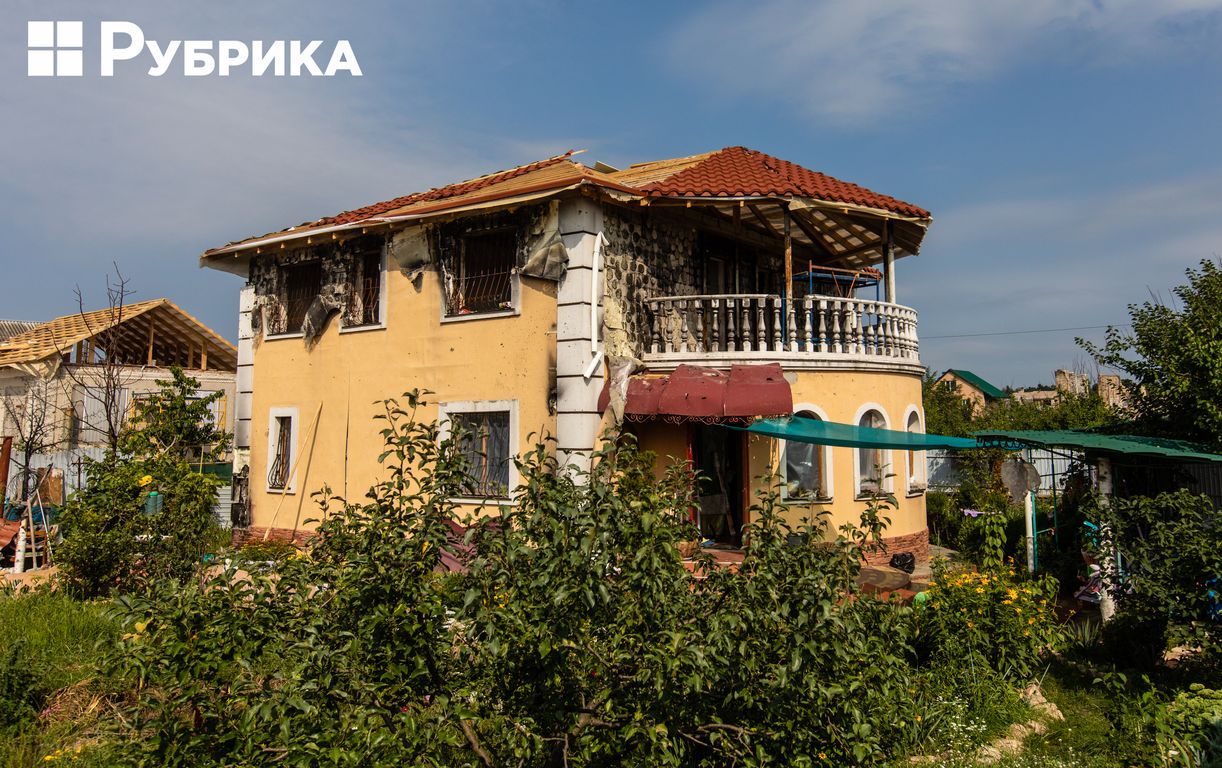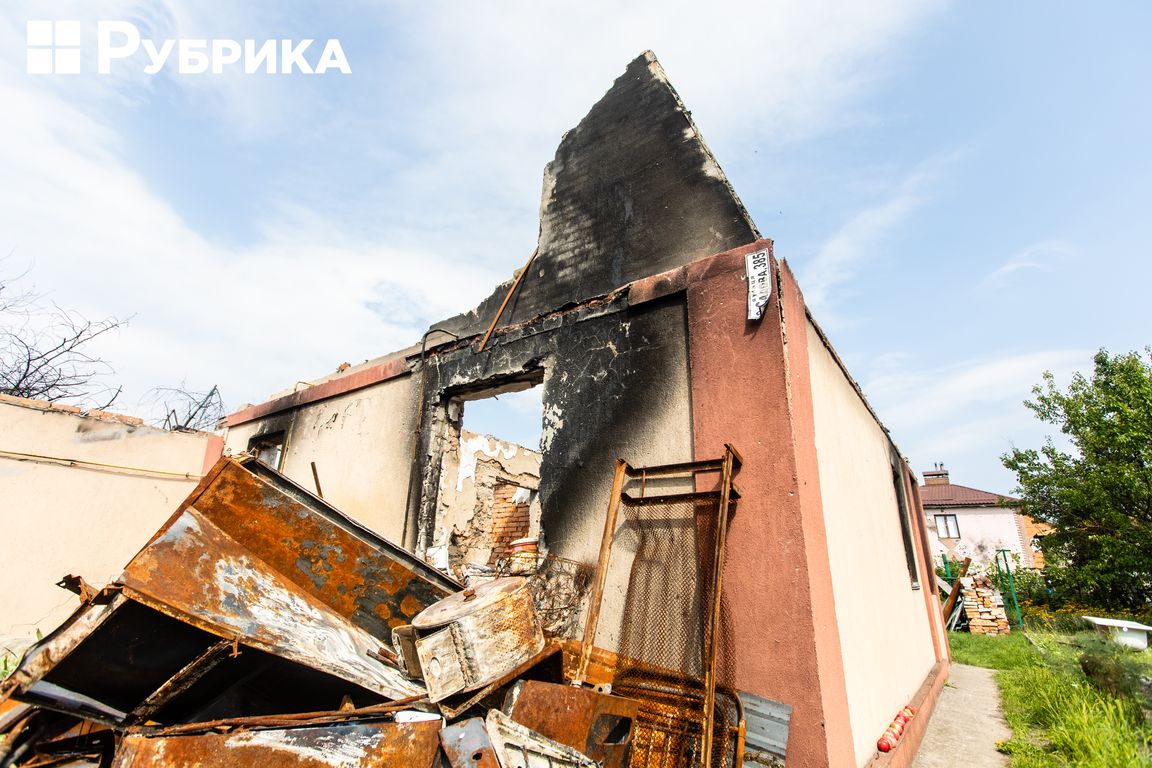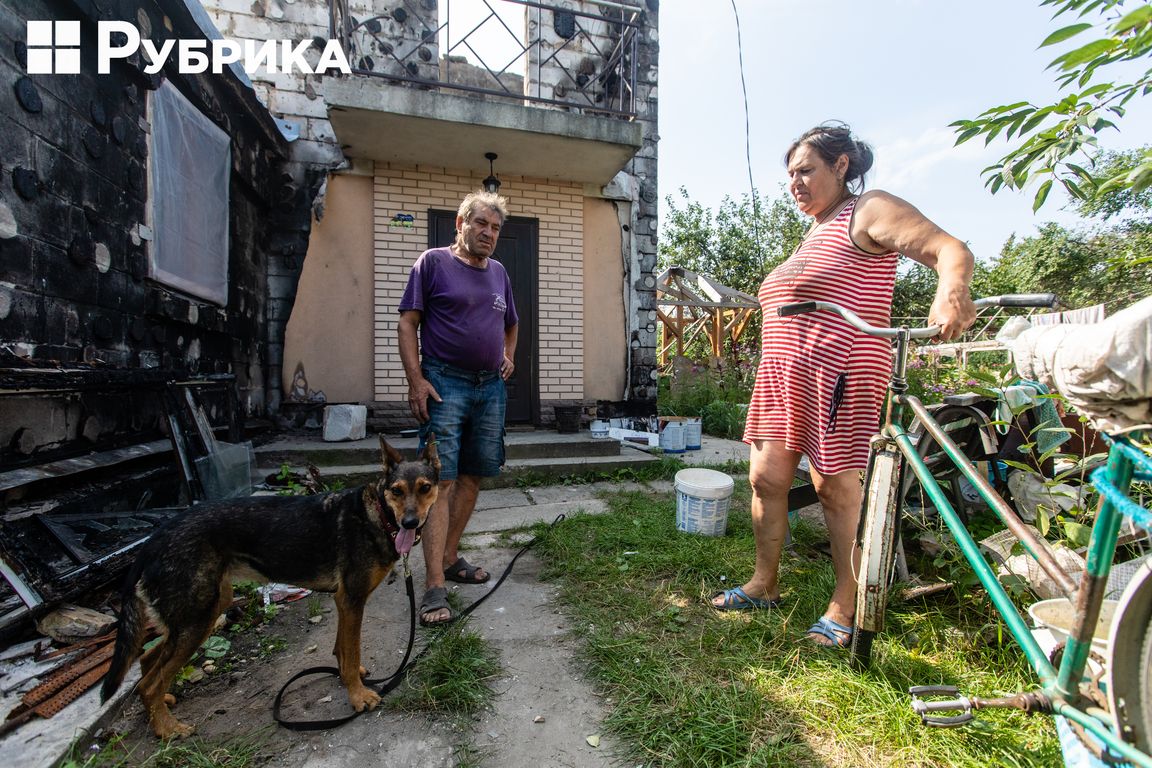
The village of Moschun, located in the Kyiv region, is one of those that suffered the most from the russian invaders in the region. In the spring, fierce battles were fought there, and the russians were stopped and did not manage to enter Kyiv. Moschun, on the other hand, lost more than ten locals and was heavily destroyed. There are still ruins here.
Ruslan Horovy, a journalist and volunteer, recently wrote on his Facebook page:
"The situation with the "cottages" near the village of Moschun, where people are left without electricity, is reaching the scale of a disaster! I have been shouting about it since spring, but the electricity has never appeared, despite the promises."
Rubryka decided to revisit Moschun (we were there in May) and see how the village lives today.
Half a year without electricity
Moschun consists of two parts – the village itself and dachas, and the dacha part is larger than the village part. And if the rural part is gradually coming to life, locals themselves, with the help of volunteers and humanitarian organizations, are restoring damaged housing; everything is much more difficult in the dacha's part — there is still no electricity here. Because of this, it is much more challenging to carry out repair work. Without electricity, there are huge problems with water — the pumps don't work. Refrigerators also need to be connected to the network, so even storing food is problematic. Washing clothes is easiest in the river.
The locals talk a lot about winter, which is rapidly approaching — without electricity, it will be impossible to heat the houses in the summer cottage part of Moschun because most of them are heated with the help of electric boilers.
Mini-buses do not drive into the country – the road here is badly broken. And the nearest store with a refrigerator is about a 40-minute walk away.
Ihor Nepevny is a resident of this part of Moschun. He lives in a partially destroyed house with his wife Natalya, her father Mykola, and two children — Ivanka, 6 years old, and Kolya, 7 years old.
The man says:
"We were here from February 24 to March 1; at that time, the children were taken to Pushcha. I came back and helped the military here. Helicopters were constantly flying above us. On one day, I counted 67 of them. We saw a lot of things. We saw russian tanks. Filmed them. On the 24th, it was still kind of quiet, and on the 25th, the first house was already on fire. Well, on the 26th-27th, battles began.
The children started crying, so we decided to leave. I came back here on April 14, when people were already being let in. We saw only ruins and a mess, a mess in every house."
Ihor says that he returned with his family and children at the end of April. At that time, there were a lot of shells everywhere in the village – Moschun was not demined immediately. According to the man, since April, the villagers have been finding shells for a long time – of course, they immediately informed the demining service.
Now the main problem of the family is the absence of electricity:
"The first chairman, Dumenko (Taras Dumenko was dismissed from the post of chairman of the Hostomel MCA on July 27, Serhiy Borysyuk was appointed instead, — ed.) promised many things and did nothing, the same is with the new chairman who said that in ten days they would start repairing electricity. But no one is doing anything (as of August 24, no work was carried out to restore electricity supply)."
Ihor says that he has a generator that uses a lot of gasoline and is very expensive. Just in case, there is also a stove – but you still need to prepare firewood.
"If winter comes and the electricity is not restored, and we go elsewhere to live, we understand that everything left here will be stolen. If a lot was stolen back in March-April, what would happen now? A few things were stolen from me then — an electric bike and little things. And a lot was stolen from some people," the man thinks.
The dacha part of Moschun is larger than the village itself. There are more houses here. According to Ihor, summer residents are offered to restore the electricity supply at their own expense. The village restored electricity at the state's expense almost immediately after the liberation.
"Kyrylo Tymoshenko (deputy head of OP, — ed.) also visited us. Dumenko estimated 23 million for the restoration of power grids, and the new chairman says 25 million are required, but no one showed us that estimate. They want to change all the pillars, but half of the pillars are intact. Here we have almost 700 plots, 505 houses connected to electricity grids, and 7 cooperatives. We have 254 destroyed houses. Before the war, about half of the residents lived here permanently. Now there are about a hundred of us living here."
"We've already gotten a little used to being without electricity because there's no Internet; sometimes the mobile connection works unstable," the man sighs and suddenly adds: "I remembered we once spent a vacation at sea. And there was a case — a family from russia was dragged far from the shore by the sea, and they were rescued. And recently, daughter Ivanka said: "Do you remember when we were vacationing at sea, and the russians were drowning there? Why did we save them?"
The children saw the war and shell explosions; everything remained in their hearts for a long time. russians will never be loved or forgiven. They have it for the rest of their lives."
"We will live here – there are many dogs and cats here. We are responsible for them"
Meanwhile, residents are gathering on the lawn next to Ihor's house.
We talk to them. Their stories are sad, sometimes calm, and some very emotional. There are many problems here; winter is coming soon, and how to live is unknown.
Lyubov Antonivna Haydashuk also lives in one of Moschun's country houses. The woman complains that the summer residents constantly appeal to the authorities to restore electricity here but are still forced to live without electricity.
"We appealed to the Homel MCA, the president, and the Kyiv regional state administration. We are promised everywhere — and there is nothing. The first of September is coming soon; we have many children, schoolchildren, kindergartens, and mothers who do not know where to go with their children.
Children come and cry: mother, why did they do this to us? Why did they destroy our house? And the mother does not know what to say to this child."
Lyubov Antonivna says there is one generator on her street: "The elderly come to us, ask to charge their phones, ask for water because they have to cook food. Earlier, the food was brought, now we have to cook ourselves, and there are not enough resources for everything."
However, the woman will not leave home — she says she will continue to live here. Even though her house is completely destroyed:
"We lived for two months in someone else's sauna house. Now the children have set up a house for us in theirs — it has remained surprisingly intact. But the grandchildren have nowhere to live there. We lie down on the floor one by one — the husband or the grandchildren. But we will live here — there are a lot of dogs and cats here, and we are responsible for them. I walk around many yards and feed other people's dogs."
"The storks have already left, but life has not returned"
Other villagers join Lyubov Antonivna. Many emotions, in many respects, repeat each other. Locals feel left to their own devices.
"We understand that the state will not help us," says one of the women nearby. — We do everything for our own money; we take out construction waste. We make inspection reports of damaged property for our own money, and no one reimburses us for them."
Locals believe they are not being helped because these are country houses. Like, the people who live here also have apartments in the cities, and with the onset of cold weather, they will leave their homes. But most of those who are staying in Moschun now live here permanently. They have nowhere to go. Those who have, are scared for their property say that abandoned houses will be looted during the winter.
Now the residents of the cottages are sure that even if the work starts in September, they will not have time to establish the electricity supply before the cold weather:
"We have a complete set of technical documentation. In order to restore the electricity supply here, there is a work estimate, but the authorities have taken no action. In the technical documentation, it is stated that the term of the work is two months. Even if they start work in September, they will carry out work almost until winter, which is already very critical. It's as if they forgot about us, that such a village exists."
They say that they will act decisively in the future. Someone suggests announcing a hunger strike: "How should we live? We don't need a road, and we will solve the problem with that bus. We need light."
Another woman adds: "Ask Alyona where she washed her clothes in April. In the river. We need at least a basic barrel of water."
Someone mentions the transformer – it turns out that it was not on the balance of the village of Moschun, and probably that is why they are in no hurry to restore electricity here: "Are we to blame that the transformer was not on balance? But we paid money all the time for electricity. We poured oil into that transformer with our own money and repaired it with our own money. We repaired wires with our own money."
We head through the village to the destroyed transformer. Moschun is completely broken, but it is slowly coming back to life. Somewhere, people are repairing the walls of destroyed houses, somewhere – roofs.
Ihor's children, Ivanka and Kolya, lead us to the transformer. Without electricity, the children's entertainment is to look for something interesting in the abandoned houses.
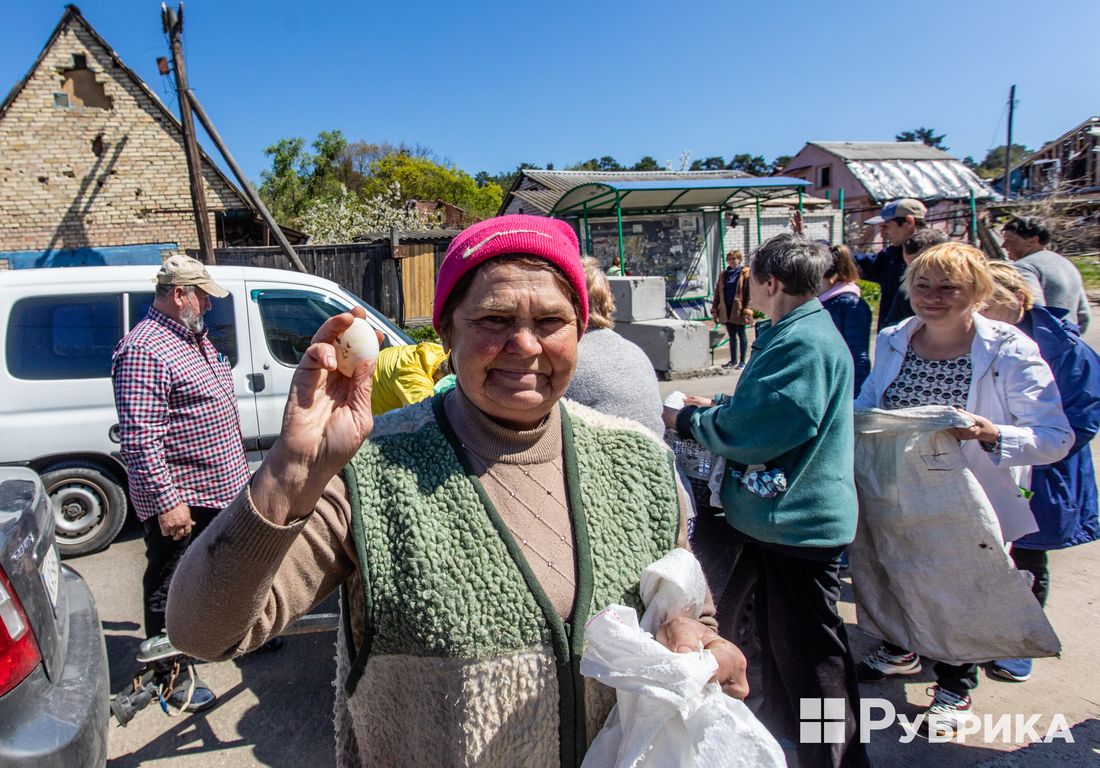
Here, in Moschun, as in hundreds of other villages that suffered from russia's aggression, you can go to every yard where people live, and everywhere you will hear the story of the great trouble they went through.
Along the way, we meet Mykola – he and his wife have been living here since 1993. He has a pillar with a bird's nest in his yard. He says that everyone rejoiced in the spring — they said that the storks had returned, and life would return. And he immediately sighs: the storks have already flown away, but life has not returned.


